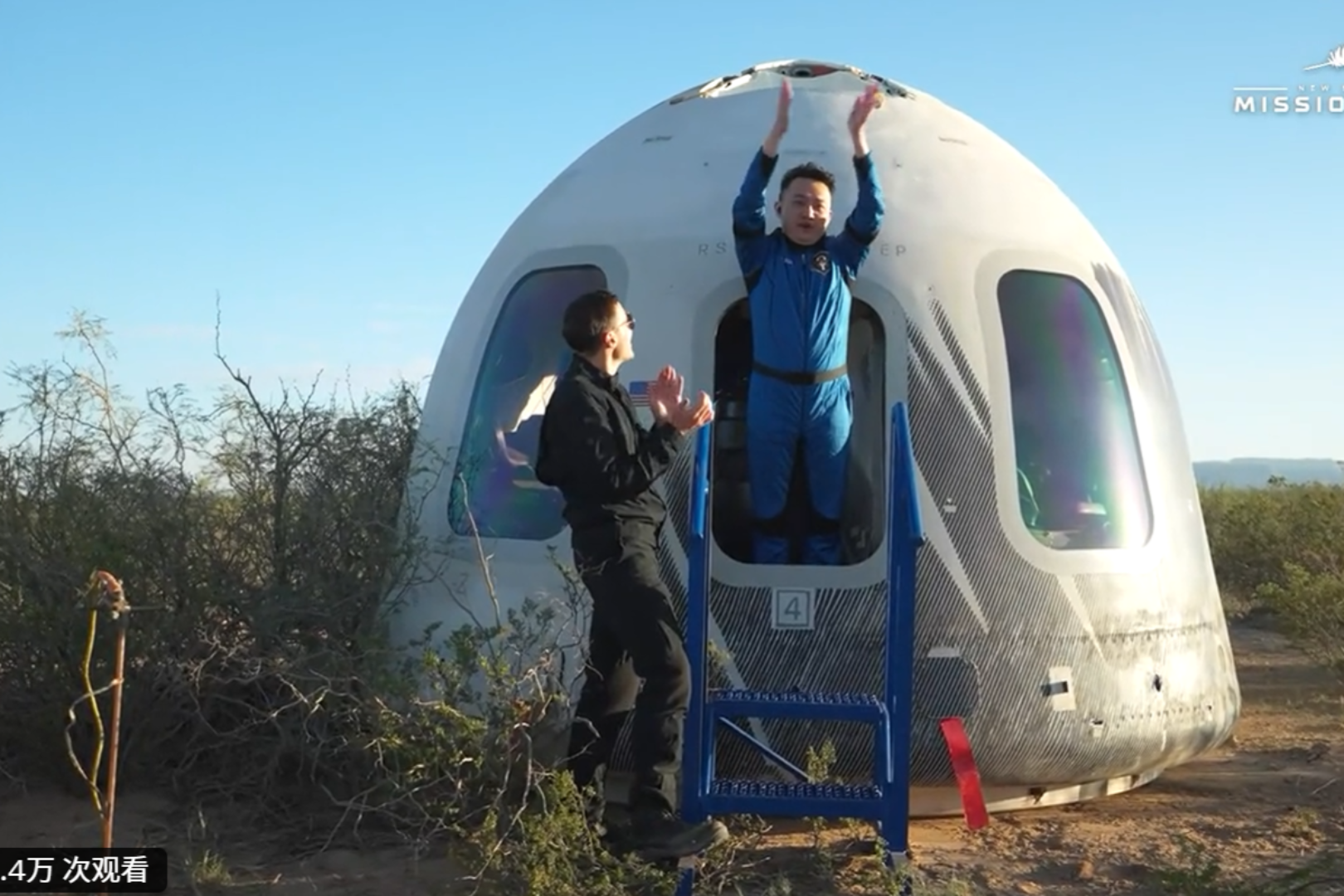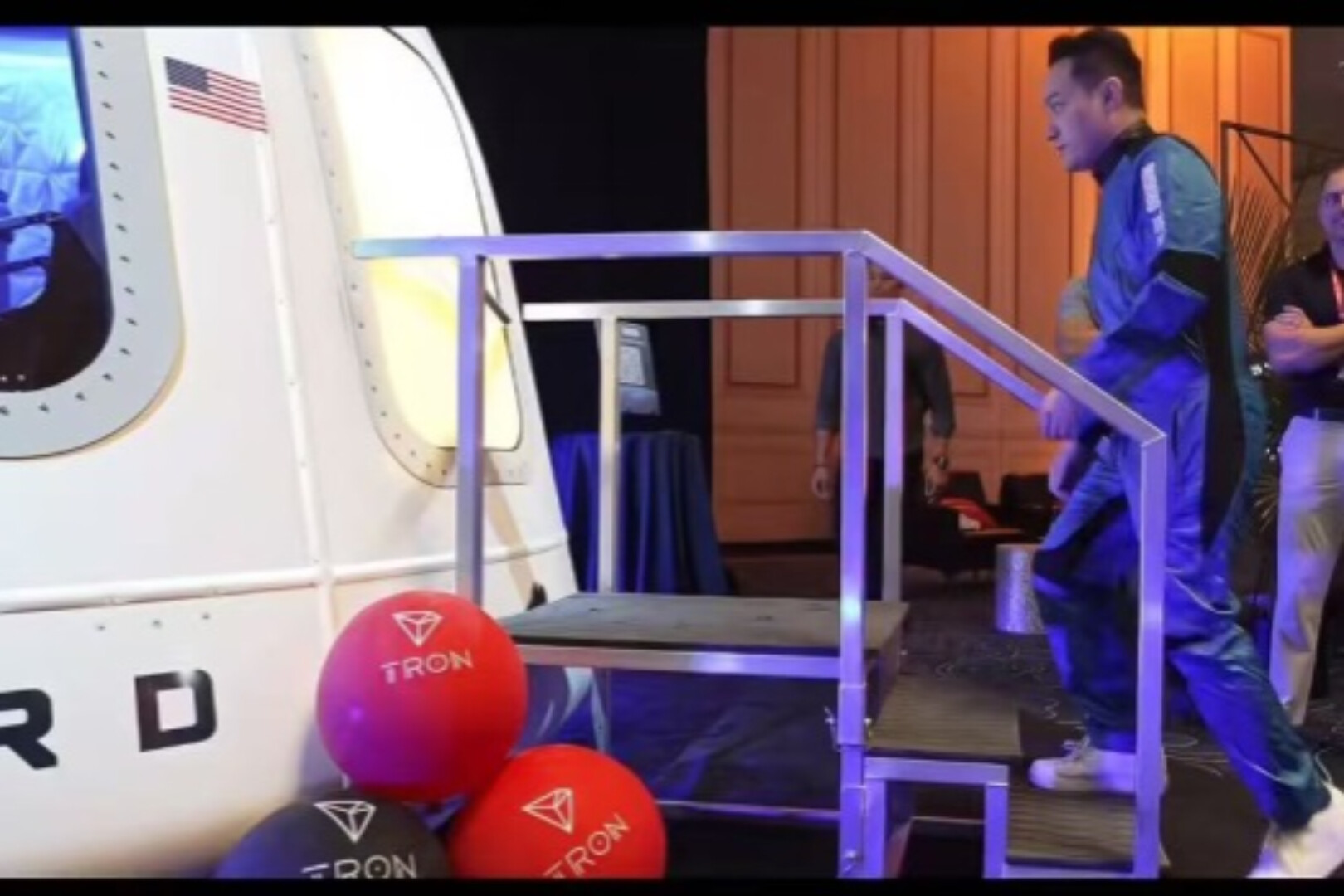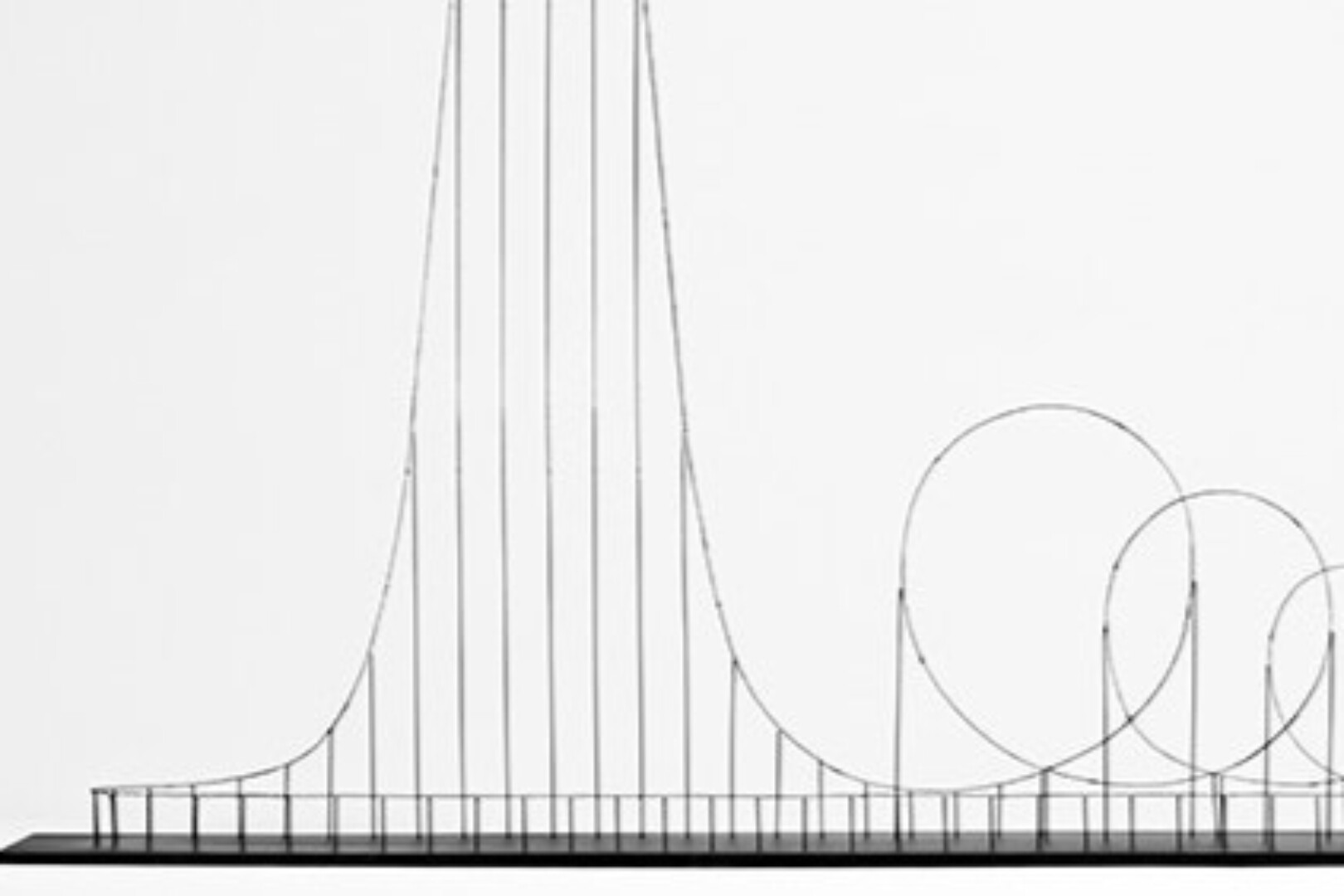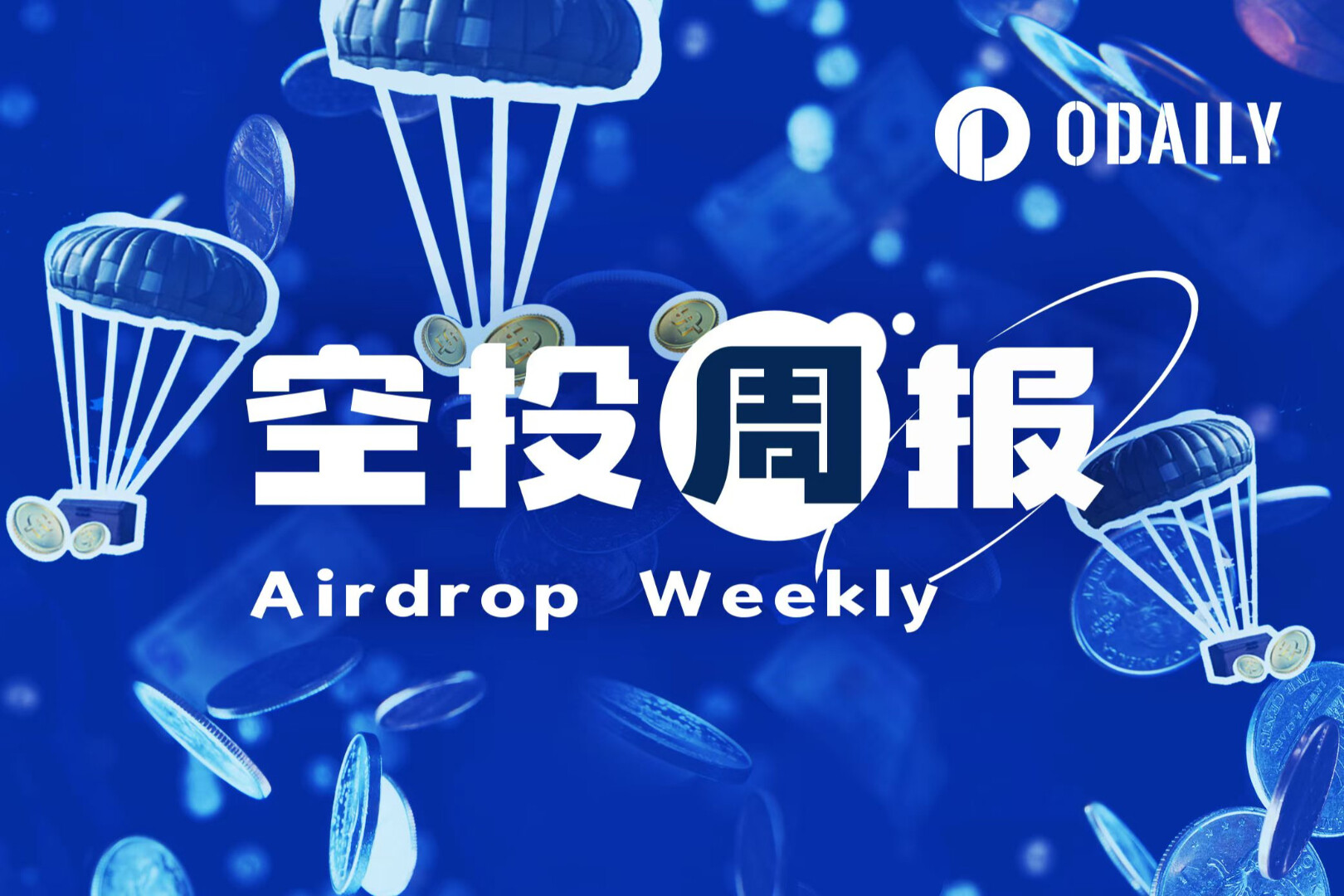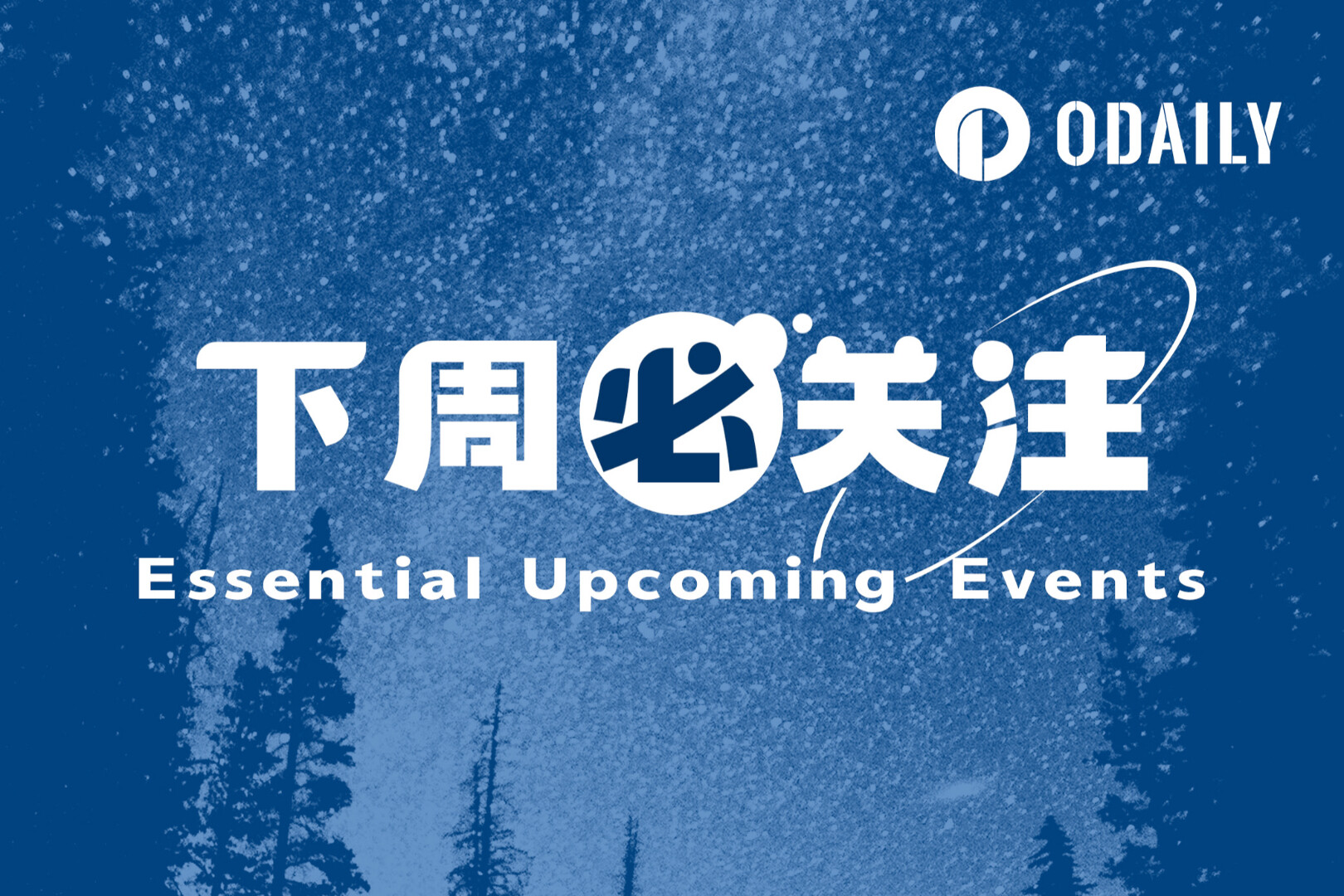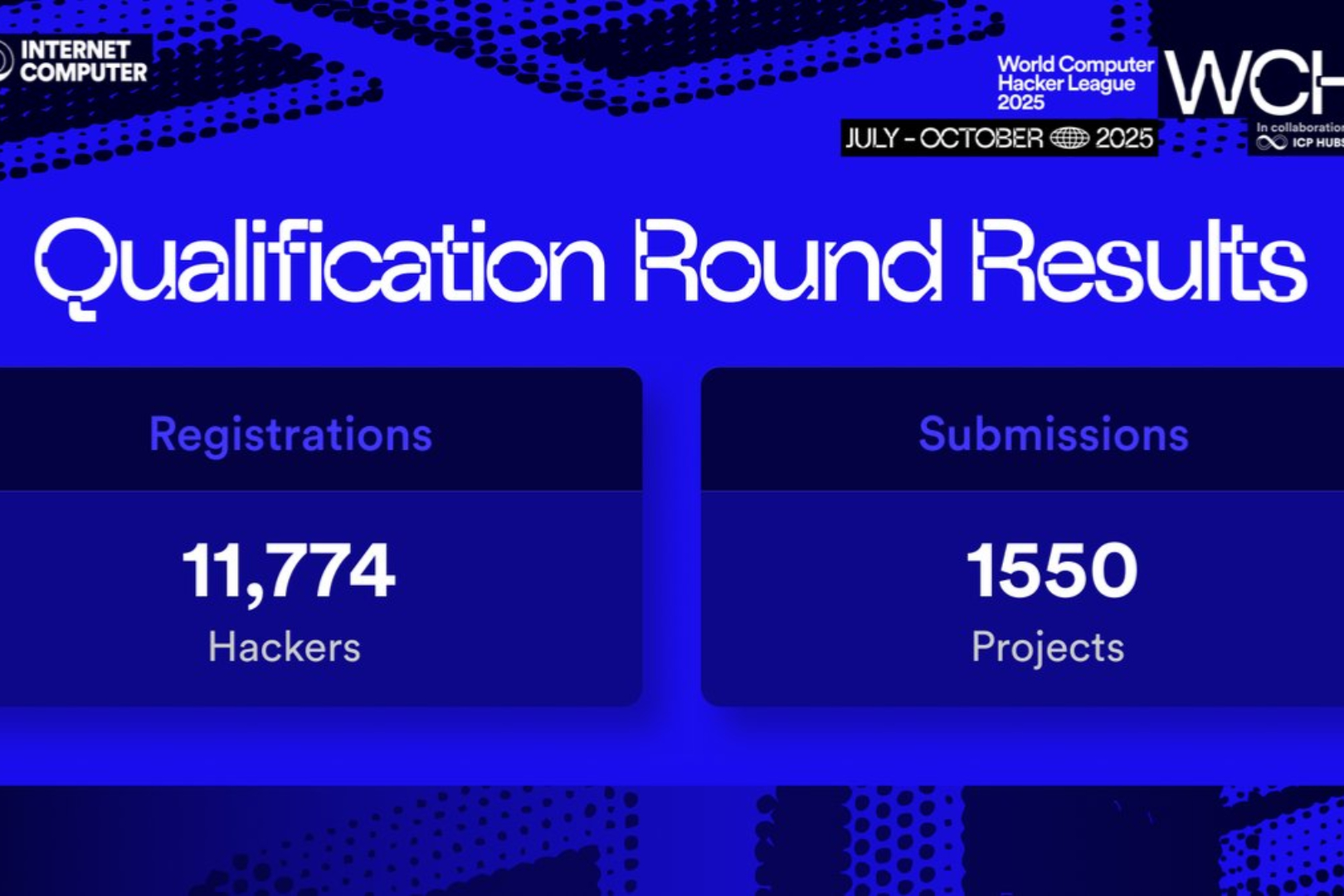“I believe DAOs are at the forefront of the coordination problem space, and their permissionless, task-driven, community-operated architecture represents a functional improvement for the future of work,” said Gitcoin founder Kevin Owocki.
As DAO organizations play an increasingly important role in the encryption ecology, GitcoinDAO and BanklessDAO recently conducted more than 400 questionnaires on the status quo of DAO ecological development and released research reports, in which the characteristics and preferences of DAO organization members were analyzed. The introduction, but also excerpts of many DAO organization members’ opinions on DAO, the main information of the report and the article of Gitcoin founder Kevin Owocki have been compiled and compiled as follows:
first level title
01 DAO is the basic building block
Humans compete for resources, but we also coordinate for survival.
We coordinate everything from scheduling, finances, groceries, international trade and more. We are interdependent beings. We do not live in a vacuum, but rely on families, companies, institutions and markets to survive.
So why are there so many coordination failures in the world? How do we fix them? How should we speed up coordination? How can we better coordinate ourselves and inspire better coordination mechanisms in the world?
I believe DAOs are at the forefront of the coordination problem space. Their permissionless, task-driven, and community-operated architecture represents a step-wise functional improvement for the future of work.
I truly believe that Ethereum's impact on the world will be better coordination.
in other words,
in other words,We can now invent new mechanisms on a foundation of unprecedented solidity and incorruptibility, and in so doing fundamentally change the way resource allocation is coordinated.
Improved coordination means better resource allocation, less corruption, and more symmetry between value created and captured. It's bad for middlemen and good for everyone else.
Once we solve the coordination problem in Ethereum, we can export what we have learned to create better coordination mechanisms in the mainstream world.
So how do we solve the coordination problem in the ETH ecosystem? We just turn it into a DAO.DAOs are the fundamental building blocks of this problem space.
first level title
02 Characteristics and Preferences of DAO Members
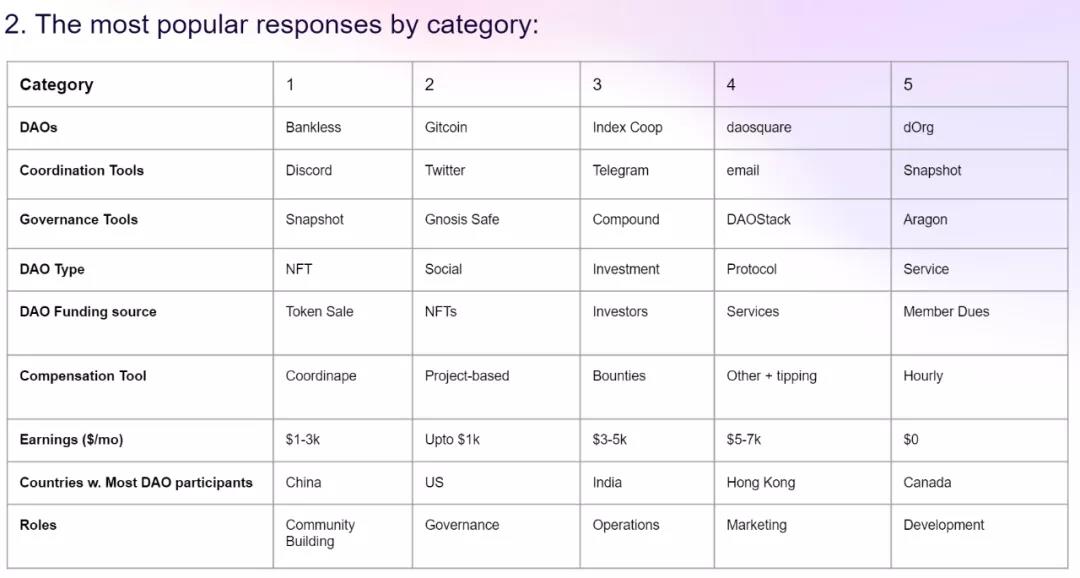
In this statistical data, 422 respondents covered a total of 223 different DAO organizations. Among them, Bankless, Gitcoin, Index Coop, DAOSquare and other organizations had the most member data, with more than 10 members.
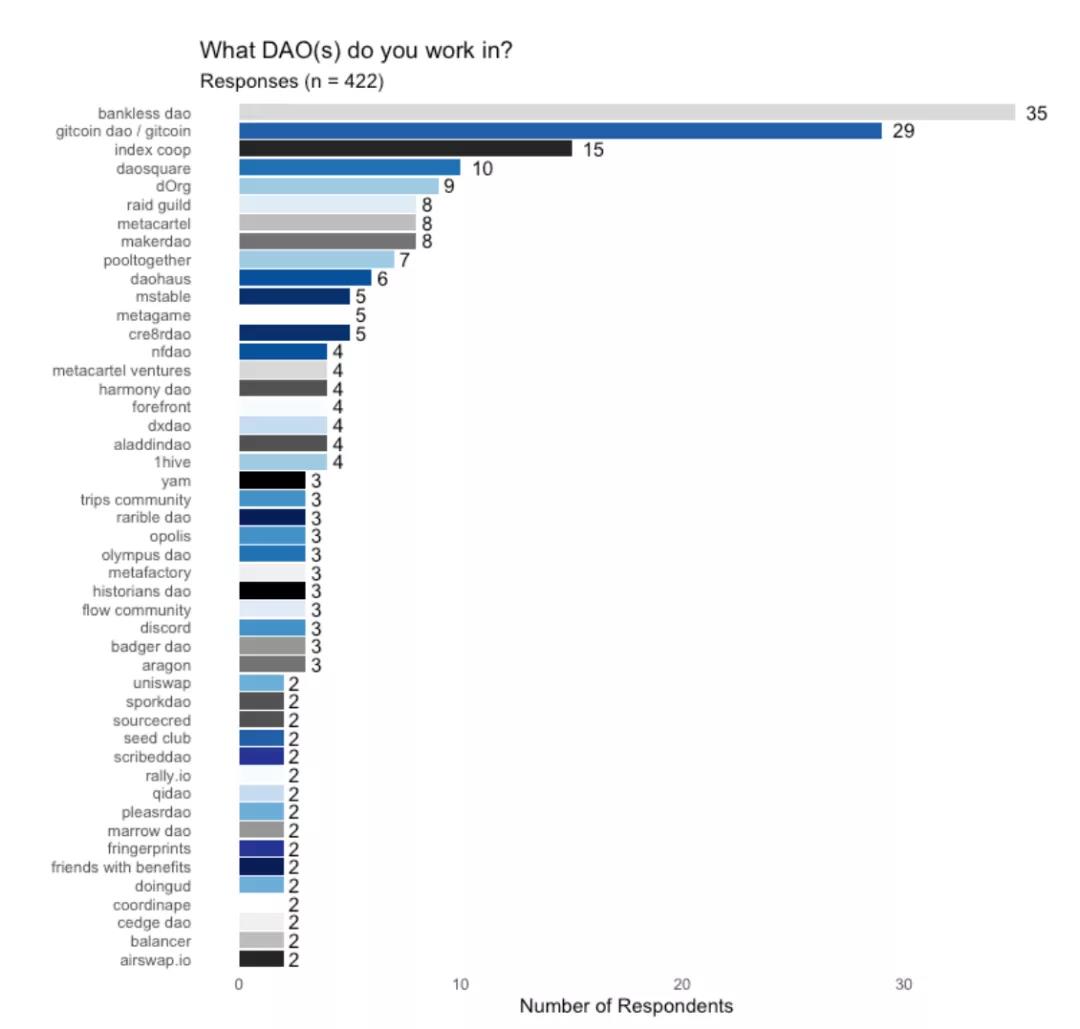
In terms of the time to enter the encryption industry, most of the respondents entered in 17-19 years.
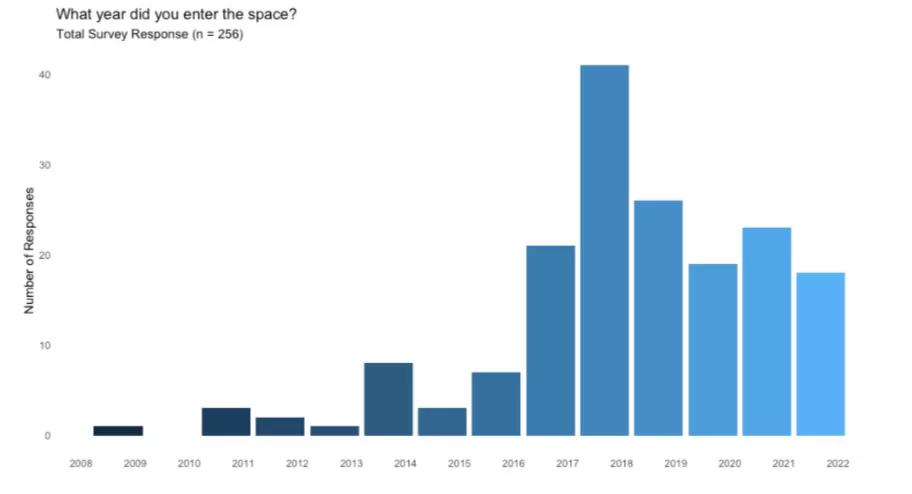
In terms of countries where DAO members are located, most of them are located in China, followed by the United States and India. In terms of cities, the cities with the highest number of DAO members are Hong Kong, Shanghai, Beijing, London, New York, Los Angeles, Singapore and other places, of which Hong Kong accounts for 7.8%.
In terms of DAO member income, most do not rely on DAO as their main source of income (189 people) or sole source of income (104 people). At the same time, most respondents indicated that their monthly income was between US$5,000-10,000.
In terms of DAO organization types, the number of DAO organizations in the direction of NFT, social, investment, agreement, service, and grant is relatively high, and the number of the first three is 112, 100, and 80 respectively.
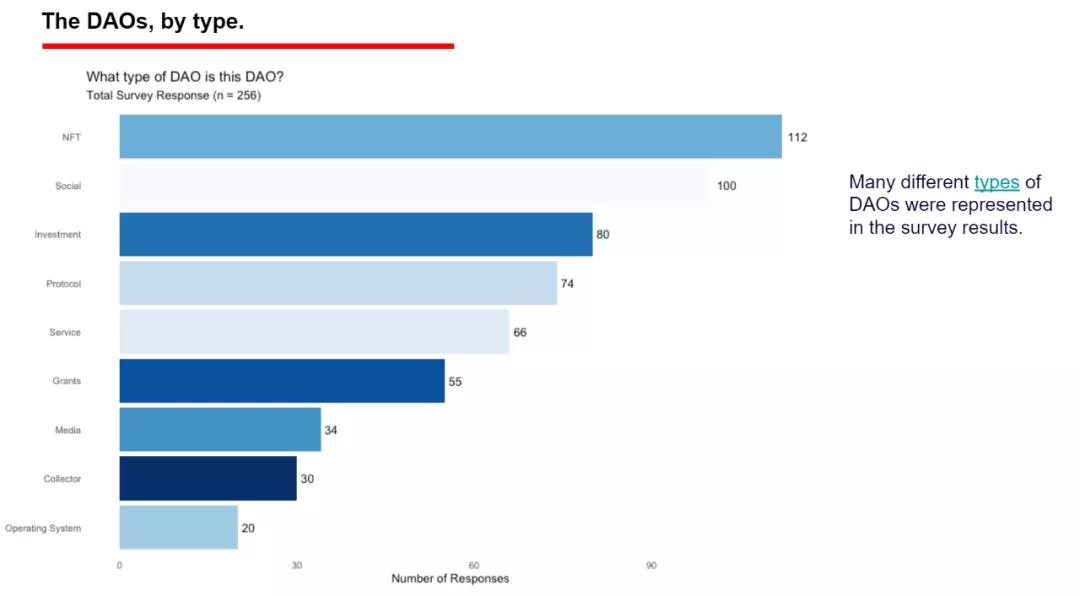
In terms of the number of DAO organization members, the number of DAO organizations with 0-50 members is the largest at 97, but there are 21 and 19 DAO organizations with members of 1000-5000 and 5000+ respectively.
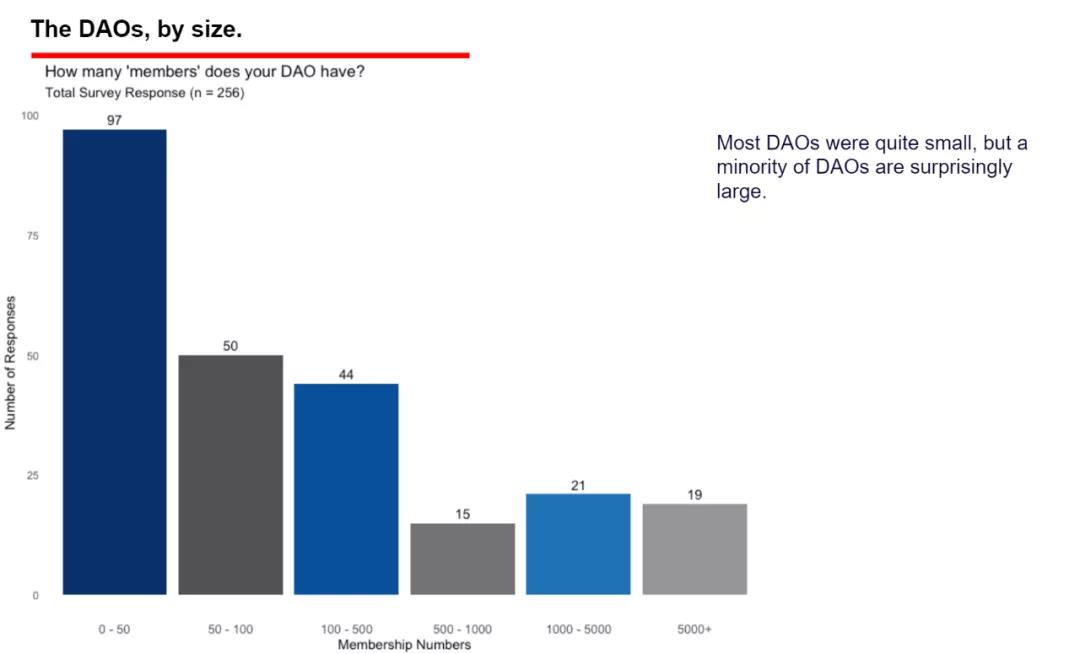
In addition, the survey report also involves the underlying blockchain projects mainly used by these DAO organization members, their favorite DApp projects and the most commonly used Web3 tools. The top underlying blockchain projects are Ethereum, BSC, Solana, Bitcoin with Polkadot,The top Dapp projects are Uniswap, Opensea, Sushiswap, Zapper, and Gnosis safe, and the top Web3 tools are Poap, Snapshot, Gitcoin, Rabbithole, and Gnosis.
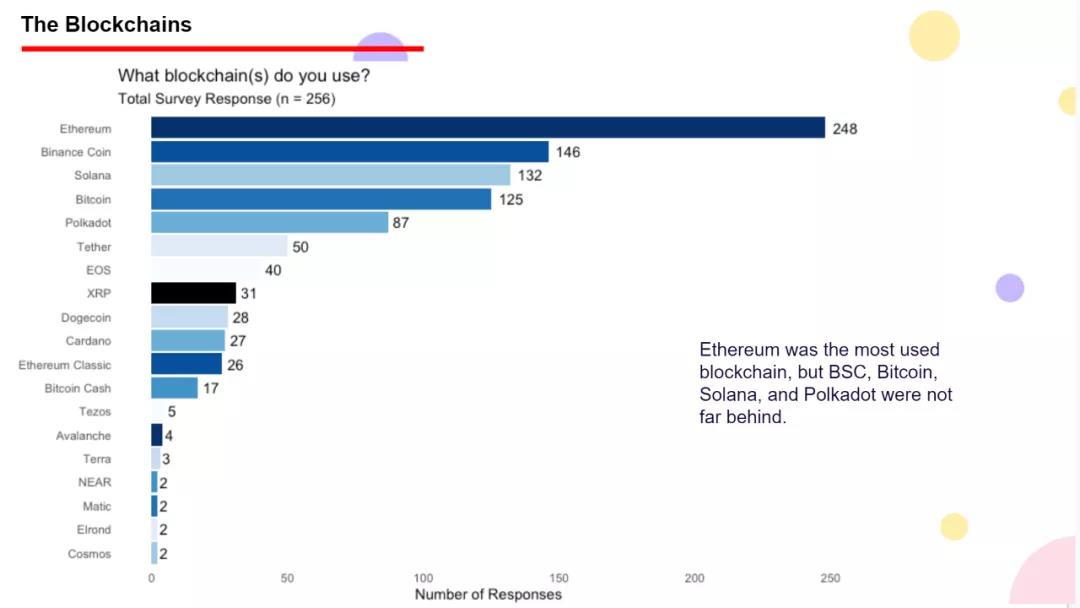
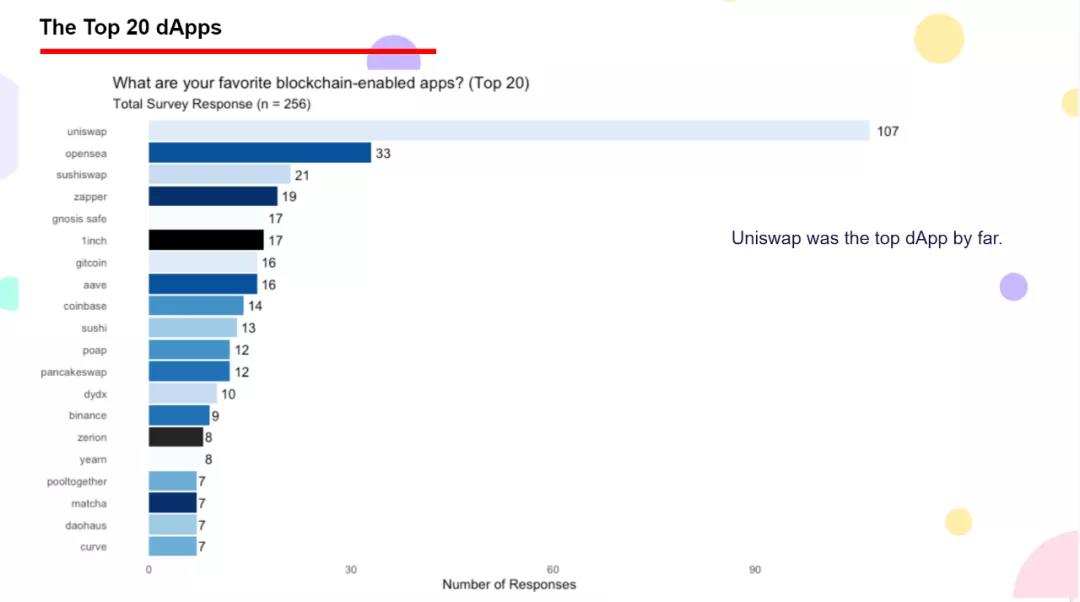
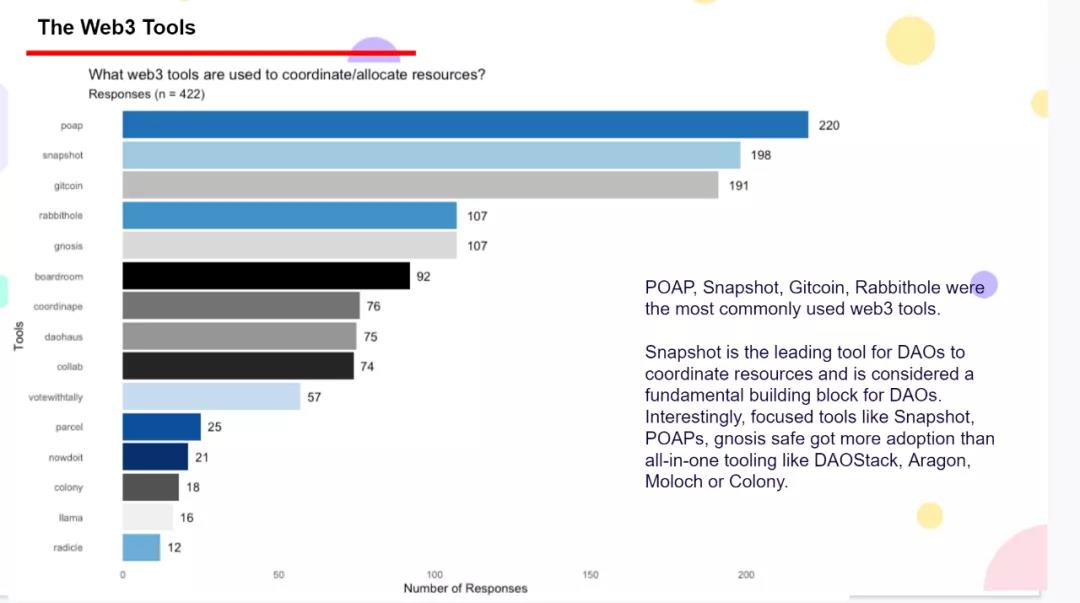
03 How do DAO practitioners view the current situation and future of DAO?
@CamiRusso:
DAOs are changing the way we organize our talent and capital.Closed companies can now become open protocols by using the decentralized network as their rail and token to incentivize participants. Their user base can instantly go global, with a more flexible workforce drawn from a larger talent pool and a flatter workforce.
DAOs can better cooperate with entities in the same field and grow together. Even the types of possible organizations are changing, as online communities can now more easily monetize their networks, and we may see some of the biggest companies of the future grow from Discord channels, an artist's fan base, or a content creator's subscribers. stand out.
@mkriak:
To me, one of the big questions about DAOs is how they will go beyond the superpowers they have had so far: relying on economic incentives as the main design strategy. We humans are not just economic humans. If we are going to delegate important things to DAOs, we need to make sure they are accountable to all of us.
People are already figuring out ways to do this in exciting ways. Gircoin's public-goods-centric approach is part of this. The way 1Hive centers around values-based "contracts" is part of this. Projects like Kleros and ETHDenver are also built on a cooperative structure, building democracy into the heart of the community. Economics needs to be accountable to democracy.
@JessicaZartler:
I look forward to the day when DAOs serve the people so that we don't repeat the personification of bureaucratic entities, making them entrenched power structures. DAOs are vehicles for collective action, not bureaucracy and slavery.
@nanexCool:
Imagine the ultimate marriage of technology, community, capital, ownership and purpose. That is DAO.
@mkriak:
From governing and shaping protocols to pooling investment capital, we're changing the way the internet is architected and funded.But there are dangers in putting the future of Web3 in the hands of the community.
We need to help the DAO community better communicate, coordinate and respect the value and contribution each of us brings. Decentralized identities that issue verified credentials and display reputation will help increase provenance and weight for DAO proposals, Discord threads, and voting power delegation practices.
@melove_07:
It is an honor to be part of an ecosystem shaping the future of organizations and institutions through DAOs in the early days of crypto. With this privilege comes our responsibility to design for sustainability, diversity, equity, and inclusion with a long-term perspective.
Otherwise, DAOs may only create value for an exclusive group and fall into the risks and negative consequences of concentration of wealth and power. If we are to change the world through how humans organize, coordinate and create value, we need greater diversity of people, backgrounds, skills and expertise in a truly multidisciplinary approach to designing the organizations of the future – not just Whoever discovered the code now.
I want to make sure that whoever finds a knife in 10, 20 or 50 years can benefit as much as whoever finds it now. I want to make sure that people who don't have thousands of dollars to buy tokens can be part of the prop and have a say. I want to make sure that what we call a cultural revolution is coming out of many different cultures, different perspectives.
@pillheadddd:
Despite their hype, DAO is just another exciting new acronym. To realize their potential, we need a deeper understanding of the cognitive underpinnings of human communication and coordination, and the broader implications of incentive design. A more sophisticated culture of pseudo-anonymous identities, backed by a reputation model based on what you actually “contribute,” could help reduce discrimination and empower those who “act.”
Finally, the cultivation of digital animism can provide us with a compassionate framework for promoting the equality of non-human digital entities and systems in an inevitably human-centric environment.
@SantiSiri:
As encryption affects the lives of billions of people, scaling coordination and legality will be critical.
The DAO will pave the way for new forms of identity and democracy that will render our traditional institutions obsolete and meet our global challenges.
@ShapeShiftCOO:
DAO is not a new type of company or a new way of governance, it encompasses these aspects, but it is much more than the sum of these aspects. This is a brand new economic activity and system, and we don't yet have a complete language to describe it, let alone a language to describe where it will go.
I believe DAOS will prove to be the next great innovation in terms of how humans collectively coordinate to achieve and incentivize the operation of common goals. Perhaps it will even prove to be the greatest innovation not only in centuries, but in millennia as humans have learned to work with each other.
@YalorMewn
But at this point,
But at this point,The best anyone can do is throw in their hands and help these entities find their footing.By using our integrity and intuition to guide this amazing technology forward, we finally freed our souls and fueled a wave of innovation that will reverberate long after we are gone.
